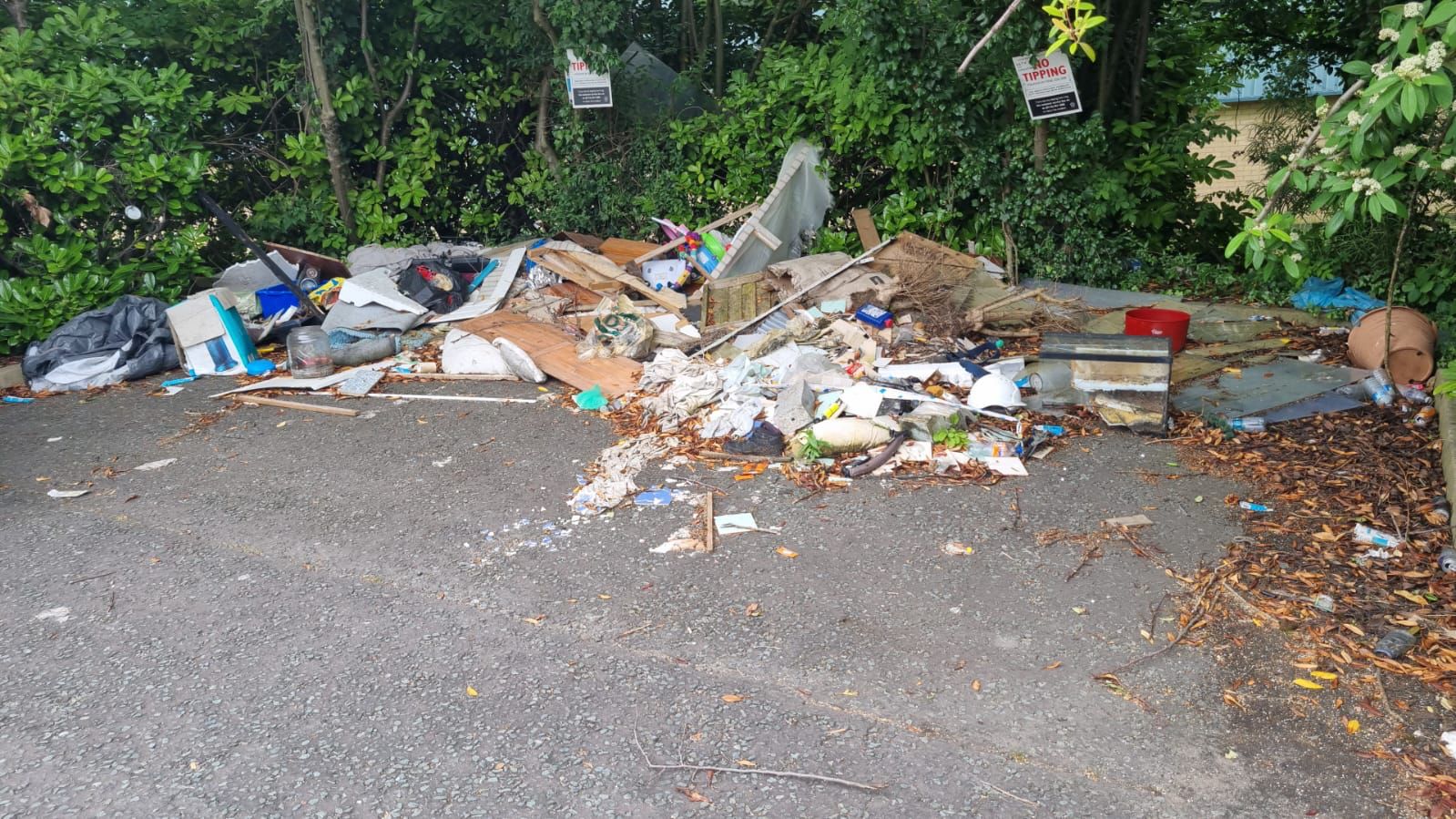If you think waste crimes are fun, the reality is far grimmer than your expectations. Fly-tipping is a criminal offence in the United Kingdom, and the penalties are severe. From 2023, the local authorities have increased the fine limit for waste dumping from £400 to £1000.
Large-scale fly-tipping incidents, more than a lorry load, can bear unlimited fines and a prison sentence from court. What makes things worse is that laws hold landowners responsible for clearing up costs in addition to penalties.
More than one million waste dumping incidents occur every year, making it a key issue for residents and farmers throughout the country. While waste crimes are rampant, you can save yourself, your property, and your money from such crimes by educating yourself about fly-tipping, from its prevention to management.
What is fly-tipping?
Fly-tipping is the illegal dumping of waste on land that is not licensed to receive it. This includes all private and public properties that cannot be used as tipping sites. According to section 33 of the Environmental Protection Act of 1999, it is a criminal offence punishable by local authorities and the Environmental Protection Agency.
In recent years, the government has intensified efforts to crack down on fly-tippers and has implemented stringent penalties to curb the problem.
How to Prevent Fly-Tipping:
As the saying goes, prevention is better than cure. A preemptive attitude can save you a lot of hassle when it comes to fly-tipping. You, as a responsible landowner, must ensure that you are neither the perpetrator nor the victim of fly-tipping, as it is a landowner’s problem both ways.
Hire Licensed Tippers:
Homeowners unknowingly become the perpetrators of fly-tipping by hiring unlicensed companies and tipper trucks. These tipper trucks show up at your doorstep and offer to dispose of your waste at a lower cost. It is usually bait.
These unregistered trucks often throw the trash at an unlicensed site such as on the side of highways, in a park, or at private land instead of dumping it in a registered tip. In many cases, authorities are able to track your address down and hold you responsible for it.
As a result, you must pay clearance costs and hefty fines in addition to the initial charges of an unlicensed company. It becomes a nightmarish situation for landowners.
It is imperative to hire a registered and licensed man with a van service. Always check the license number before hiring a waste management company and take a receipt for their services as evidence in your favor. You may ask them to show the receipt from dumping tip before paying them full amount.
By responsibly hiring a proper and licensed waste carrier, you uphold the law and protect the environment from the consequences of waste dumping.
Secure Your Premises:
Unsecured premises are often the target of fly-tippers. Dark and unguarded homes and farms are fly tippers’ top choices. Therefore, it is crucial to take appropriate security measures to deter fly-tippers.
You should install gates and fences to secure your area against unauthorized entry and trespassing. It is better to install high fences and proper lighting to discourage waste dumpers. Surveillance cameras are helpful in deterring waste crime.
Staying informed about local waste management laws is crucial:
Keeping communities and towns tidy is one of the top priorities of government after elections. Therefore, local laws and regulations may change from time to time. To avoid illegal dumping, it is best to stay informed about local waste regulations, collection schedules, fees, and categories of waste.
Stay Vigilant Against Fly-Tippers:
As part of community welfare efforts, you should take part in local initiatives and stay vigilant against fly-tippers. If you observe an incident of illegal waste dumping, you should alert the authorities immediately.
It would help if you also tried to collect evidence by making a video of the fly-tippers, noting down the make/model/colour/registration plate/, and taking pictures of the site. But remember to practice caution in collecting evidence as they are criminals and can harm you.
How to Manage Fly-Tipping?
What should you do if you are a victim of fly-tipping? Whether it is because of personal vendetta or vulnerable premises, you can become a victim of fly-tipping. Here are some of the things that can help you deal with the situation effectively.
Do not Go Through the Waste:
Whether it is a small bag of rubbish, a torn mattress, or a lorry-load of waste, you should not touch it. Illegally dumped waste may contain harmful chemicals and sharp substances that pose a risk of injury. So, staying at a distance from the trash is in your best interest.
Alert the Authorities:
The sooner you alert the authorities, the better. If you want to have a strong case in your favour, it is better to involve local authorities right away.
Collect Evidence:
Video evidence, such as surveillance footage or pictures of a vehicle, can help prosecute a criminal. Police and local authorities use these pieces of evidence to track down and indict criminals.
Responsibly Clear the Waste:
According to the laws, waste disposal is the landowners’ responsibility. So, if the waste has ended up on your property, even if it is illegally dumped, you should arrange for its proper disposal. There is no point in further fly-tipping the waste, as you can get caught. So, it is better to hire a licensed company and get rid of the waste responsibly. You can later sue the perpetrators and claim reimbursement.
Fly-tipping is a serious crime, but there are ways to deal with it effectively. A comprehensive approach focusing on prevention of waste crime and raising awareness about effective management can help to combat the problem.

